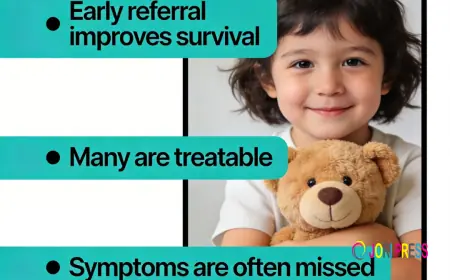Balancing Love and Parenthood: Finding Harmony Between Relationships and Family Life in the Canada
At Between the Covers Magazine, we’ve explored countless stories that reflect the everyday struggles of modern families.

In the heart of every home lies an invisible balance — the delicate dance between love and parenthood, between being a partner and being a parent. For couples across the UK, maintaining that equilibrium often feels like a challenge worthy of its own chapter in the book of life. The truth is, both relationships and parenting demand energy, attention, and care — and when one takes over, the other can quietly fade into the background.
At Between the Covers Magazine, we’ve explored countless stories that reflect the everyday struggles of modern families. Today’s article takes a closer look at how to nurture relationships while raising a family, offering heartfelt insights and practical advice for parents, partners, and everyone navigating love in the midst of chaos.
1. The Shift: From Romantic Partners to Co-Parents
Every relationship changes once children enter the picture. According to a 2023 study by the UK’s National Childbirth Trust (NCT), nearly 60% of couples reported that their relationship quality declined in the first three years after having a child. Sleepless nights, endless routines, and financial pressures take a toll on intimacy and emotional connection.
Yet, this shift isn’t necessarily negative — it’s a transformation. Parenthood brings new meaning, shared responsibility, and deeper emotional ties. The key lies in acknowledging the transition and actively nurturing the bond that existed before the children came along. A weekly check-in, a shared meal without screens, or simply asking, “How are you doing?” can reignite emotional connection.
2. Communication: The Lifeline of Healthy Relationships
In both Relationship & Advice circles and family therapy, communication remains the cornerstone of intimacy. Many British parents struggle with time and tone — conversations revolve around school runs, bills, or bedtime schedules rather than emotions or dreams.
A 2024 Relate UK survey found that 1 in 4 couples said they rarely have meaningful conversations. To change that, couples can try:
-
Setting aside 10 minutes daily for uninterrupted talk.
-
Using “I feel” statements instead of blame.
-
Practicing active listening — reflecting back what your partner says.
Healthy communication helps partners stay connected beyond their parenting roles, strengthening the sense of “us” amidst the chaos of family life.
3. The Parenting Paradox: Unity Through Diversity
No two people parent the same way — and that’s okay. Differences in parenting styles often mirror differences in upbringing or personality. The challenge arises when those differences turn into conflict.
In Parenting and Family discussions across the UK, experts emphasize collaboration over competition. Instead of arguing over bedtime routines or dietary choices, couples can agree on shared values — safety, kindness, respect — and allow flexibility in methods. Children benefit most when they see teamwork between parents, not tension.
As psychologist Dr. Jane Evans notes, “Children learn emotional regulation from watching their parents resolve conflicts calmly.” Unity doesn’t mean uniformity — it means respect for individuality while maintaining a shared purpose.
4. The Modern UK Family: Breaking Old Expectations
British families have evolved — and so have their dynamics. With dual-income households becoming the norm, traditional gender roles are fading. Still, many couples face societal pressure to “do it all.”
The UK Office for National Statistics reports that 73% of mothers and 92% of fathers are now in the workforce, creating new challenges for family time and relationship health. The answer isn’t perfection — it’s partnership.
Couples who thrive often share domestic responsibilities, plan family time intentionally, and let go of unrealistic ideals. Equality in chores, emotional labour, and career support transforms households into havens of mutual respect.
5. Self-Care and Couple-Care: The Foundation of Family Strength
It may sound cliché, but self-care is not selfish — it’s essential. A burned-out parent cannot pour love into others. Likewise, a neglected relationship cannot model emotional security for children.
Incorporate small, consistent rituals:
-
Walks together after dinner.
-
“Screen-free Sundays.”
-
Reconnecting through hobbies you once shared.
Relationship therapists in the UK often suggest scheduling “couple time” like any other appointment — because it matters just as much. When partners nurture their relationship, they create a stable, loving foundation that benefits the entire family ecosystem.
6. Love in the Digital Age: Managing Technology in Family Life
In a world of constant connectivity, the line between presence and distraction has blurred. Phones at the dinner table, bedtime TikToks, and work emails on weekends erode real family interaction.
Experts from the UK’s Family Links Charity recommend creating “tech-free zones” — times and spaces where devices are put aside in favour of eye contact and conversation. For couples, this simple act restores intimacy and awareness.
Digital boundaries teach children that love requires presence — not just proximity.
7. Conflict as Connection: Turning Arguments Into Understanding
All relationships experience conflict; what matters is how it’s handled. Studies show that couples who argue constructively — without contempt or stonewalling — are five times more likely to remain satisfied long-term.
In the UK’s Relationship & Advice community, experts suggest:
-
Address issues early before resentment builds.
-
Focus on behaviour, not character (“That action hurt me,” not “You’re selfish”).
-
End disagreements with gratitude or humour — it restores emotional safety.
Conflict handled wisely becomes a bridge to deeper understanding.
8. Teaching Love by Example
Children absorb their parents’ relationship patterns. Showing affection, empathy, and teamwork teaches them what love looks like. When parents laugh together, apologise, or show support, children learn emotional intelligence firsthand.
This is where Parenting and Family intersect beautifully — love between parents is not separate from parenting; it is parenting in action. A peaceful, loving partnership raises emotionally secure children who carry those lessons into their own lives.
9. The Cultural Layer: Love and Family in the UK Context
Cultural diversity across the UK adds richness to family life. From South Asian extended families to single-parent households and same-sex parents, the definition of “family” continues to evolve. This inclusivity mirrors the broader shift toward compassion and openness in British society.
Magazines like Between the Covers celebrate these diverse narratives — reminding readers that there’s no single right way to love or parent, only the authentic one that nurtures your unique household.
10. Moving Forward: Embracing Imperfection
Perfection is the enemy of peace. Relationships flourish not in flawless execution but in forgiveness and effort. Every family has its messy moments — the arguments, the exhaustion, the unwashed dishes — but love persists through it all.
Balancing relationships and parenting isn’t about dividing time evenly; it’s about giving what’s needed most in each moment. Some days, your partner needs more. Other days, your children do. The art lies in flowing with life’s rhythm, knowing that love, in all its forms, is still the constant.
Final Thoughts
Modern family life in the UK is a juggling act — careers, kids, love, and self-care. But with intentional effort, communication, and empathy, couples can thrive through every phase. Whether it’s scheduling “us time,” sharing household responsibilities, or simply saying “thank you,” small acts of love rebuild connection.
At the heart of every strong family lies a strong partnership — and that’s a story worth writing, reading, and living.
? Contact Us
-
Subscribe now:
-
Email us: [email protected]
References
-
National Childbirth Trust (NCT), “Relationships After Having a Baby,” 2023.
-
Relate UK, “The Way We Are Now: UK Relationship Report,” 2024.
-
Office for National Statistics, “Families and the Labour Market,” 2024.
-
Family Links UK, “Building Emotional Resilience in Families,” 2023.
-
Evans, J. (2022). Parenting with Emotional Intelligence. London: Bloomsbury.
What's Your Reaction?
 Like
0
Like
0
 Dislike
0
Dislike
0
 Love
0
Love
0
 Funny
0
Funny
0
 Angry
0
Angry
0
 Sad
0
Sad
0
 Wow
0
Wow
0
















































